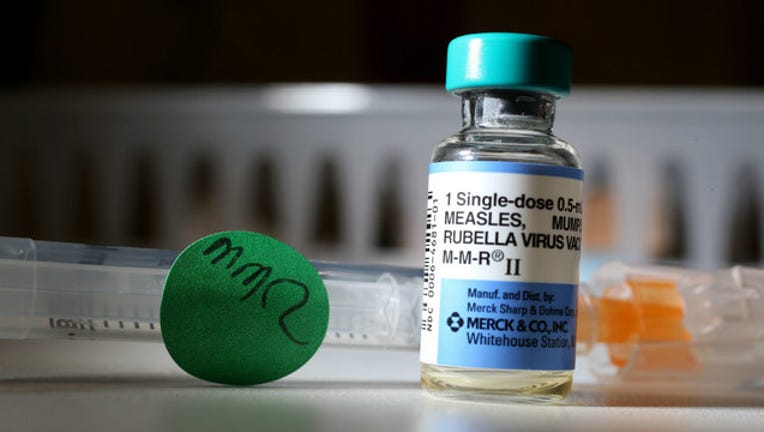Visitor to Chicago may have spread measles to others at O'Hare, in Greektown and Near North Side

A dose of measles vaccine. (Joe Raedle/Getty Images)
CHICAGO - Public health officials are working to track down people who may have been exposed to the measles virus after confirming that a recent traveler to Chicago was infected with the disease.
The traveler visited Mr. Greek Gyros, 234 S. Halsted St., in Greektown between 12:30 p.m. and 4 p.m. Dec. 12, the Chicago Department of Public Health said in a statement. They also went to a Starbucks, 515 N. State St., in Near North between 1:30 p.m. and 5 p.m. that same day.
The traveler visited two terminals at O’Hare International Airport as well, officials said. They were at Terminal 3 between 3:30 and 7 p.m. Dec 12 and at Terminal 1 between 4:30 and 8 p.m. Dec. 17.
The Department of Public Health is in the process of contacting people who were exposed, officials said. Anyone who thinks they may be at risk is encouraged to check their immunization records or contact their healthcare providers.
“Those at greatest risk for infection are unvaccinated children, especially infants, pregnant women without evidence of measles immunity and individuals with a weakened immune system,” officials said. “Measles starts with a fever that can get very high. Some of the other symptoms that may occur are cough, runny nose, red eyes, diarrhea and a rash of tiny, red spots that start at the head and spread to the rest of the body.”
According to the Department of Public Health, Chicago has one of they highest vaccination rates for measles, mumps and rubella in the country, with 94% of children between 19 months and 3 years old having been vaccinated at least once. The Center for Disease Control and Prevention recommends all children between the ages of 1 and 6 years old get two doses of the vaccine.
“Measles is highly contagious and any unvaccinated or non-immune person can become infected,” said CDPH Acting Commissioner Allison Arwady, M.D., M.P.H. “The best protection against measles is through immunization, and everyone should make sure they and their family members are up-to-date on their vaccines.”

